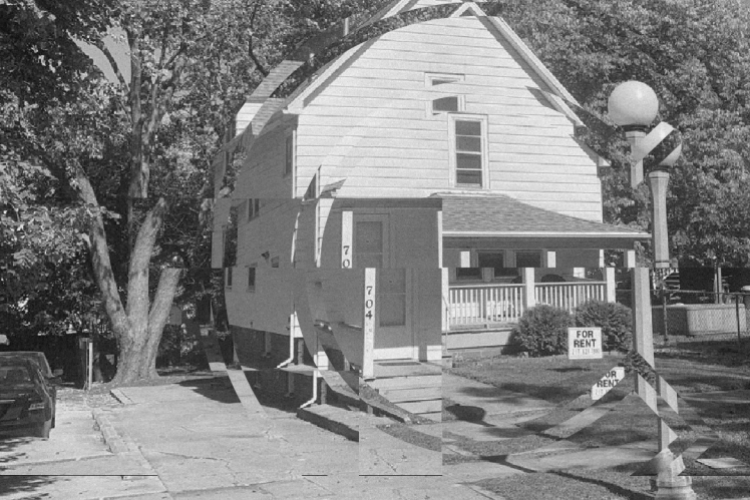Gen Z Sees It Differently: Profesor Film Mengubah Teaching Approach Sesuai dengan Cara Pandang Gen Z
Para profesor program Cinema Studies di AS tentang bagaimana mereka merubah pendekatan mereka dalam screening film-film kontroversial dan menyajikannya kepada generasi “woke”.

Foto: Beyer Blinder Belle/Fred Charles
Teks: Ken Durasi
Di masa-masa awal kuliah, saya menemukan beberapa diskusi tentang sutradara yang memiliki pribadi yang problematic, atau pemutaran film-film kontroversial. Salah satu hal yang menarik dari program Cinema Studies adalah dialog terbuka dan terus-menerus antara mahasiswa dan profesor mengenai film spectatorship. Selalu ada reaksi beragam dari siswa. Saya ingat teman saya bolos lecture untuk film kontroversial Gone with the Wind (1939) dan berkata, ““I’m not gonna see this racist movie.” Saya ingat seorang teman sekelas menolak untuk berdiskusi tentang Cléo from 5 to 7 (1962) karya Agnès Varda karena “I don’t want rich people coming to us with their problems.” Itu cukup mengejutkan saya; saya tidak menyangka akan kejujuran yang datang dari mereka, betapa mereka tidak peduli untuk mengesankan para profesor dengan menyetujui selera mereka.
“Context is so important,” Dr. Emily Carman, profesor Studi Film dan Media di Dodge College of Film and Media Arts di Chapman University, mengatakan kepada The Wrap. Menyoroti pentingnya mengevaluasi hasil sinematik selama masa-masa yang lebih bermasalah seperti tahun 30-an dan 40-an, Carman mengatakan, “to act like these films weren’t controversial when they came out is just being a bad historian. There’s some really interesting scholarship that’s come out from African American film historians that have tried to situate actors like Hattie McDaniel and their personae off screen, versus the limitations they had on screen.” Konteks sangat penting. Tanpa konteks, kita tidak akan pernah bisa melihat dampak jangka panjang dari The Jazz Singer (1927); film pertama dengan rekaman musik yang disinkronkan serta nyanyian dan ucapan yang juga sinkron. Dengan kata lain, film pertama yang menandai berakhirnya the silent era. Karakter blackface dalam The Jazz Singer jelas keputusan yang buruk, namun diskusi itu sendiri dapat memunculkan perspektif baru. Dan kita tidak bisa mengubah apa pun tentang film yang dibuat hampir seabad yang lalu, tapi yang bisa kita ubah adalah percakapan yang melingkupinya. Kalau memang cerita seperti itu dinilai pantas untuk iklimnya, mari kita pastikan agar tidak ada cerita dengan kebodohan yang sama di masa depan.
Namun banyak siswa Gen Z yang langsung merasa terganggu ketika mereka mendengar nama contohnya Roman Polanski. Mengetahui sentimen tersebut, Jason Clark dari The Wrap mengajukan pertanyaan, ““Given the thorny reputations of those (and other) filmmakers, plus the controversial nature of their work, is there an inherent backlash to teaching these filmmakers nowadays?” Deborah LaVine, Dekan Fakultas Pembuatan Film di Fakultas Seni Universitas North Carolina mengatakan, “When we’re talking about the Polanskis and the Woody Allens or whomever, are we also seeing some of the problems that they exhibited in their personal behaviors perpetuated in the work? It’s all about interpretation. And we now have accessibility to so many brilliant films, and with the democratization of filmmaking and so many people making films, do we need to focus on particular artists if we feel that the message in their work doesn’t reflect something that we want to support?”
Perbedaan lain dalam mengajar generasi “woke” adalah perhatian yang lebih besar terhadap visual triggers. Dr. Carman berkata tentang masalah ini, “That’s been an interesting lesson for me the last couple of years preparing students for these topics that were taboo but were tolerated in parts of our culture,” ia lanjutkan, “I have to put a note in that they should come talk to me and I can prepare them. I’ve had some students who need to step out of the room. And I respect that.”
Namun dialog terus-menerus antara guru dan mahasiswa menawarkan lebih banyak ruang untuk interpretasi baru, penemuan baru tentang film tertentu yang diputar di kelas (bahkan untuk para profesor). Carman berkata,“Afterwards, they don’t want to hear the facts. They want to hear themselves wrestle with the interpretation. They want to hear what their colleagues saw, which I personally find kind of wonderful.” Berbicara tentang mengajar generasi baru mahasiswa Cinema Studies, dia berkata: “It’s not so much teaching new or different films for this new generation of viewers, but a ‘reframing’ of the canon, or rethinking how film noir can be understood as ‘femme noir,’ given the preponderance of female-authored source material. Or even when teaching Alfred Hitchcock, highlighting how he had women collaborators behind the screen. The films don’t change, but we can frame them through an inclusive lens and spotlight new research and discoveries that weren’t written or prioritized yet when you and I were in undergraduate programs.”











